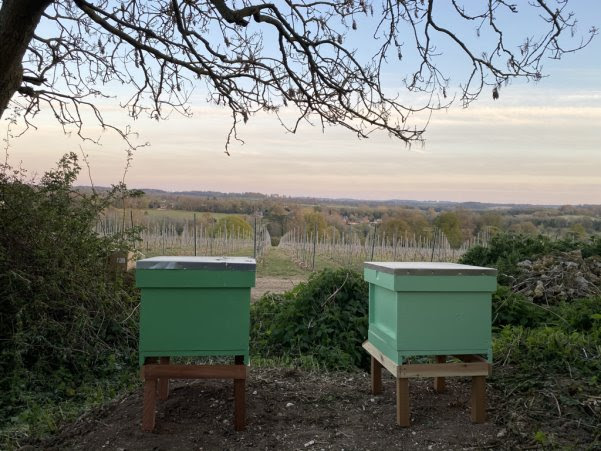Champagne group gets sustainability certification for English vineyard
Champagne’s Vranken-Pommery Monopole Group has gained a sustainability certification for its English vineyard, the source of the company’s Louis Pommery England sparkling wine.

Announced this morning, the group, which owns Champagne Pommery, has been awarded the WineGB Sustainable Wines of Great Britain Trade Mark for the wine producer’s Pinglestone Estate, which is located in New Alresford, Hampshire.
Comprising a 40-hectare site where chalk is the dominant element, the property has 30 hectares of vines, planted between 2017 and 2019 with Chardonnay, Pinot Noir and Meunier – the classic grapes of Champagne.
Importantly, the group has taken an ecologically-sensitive approach to its English estate, in line with the ethos at the other Vranken-Pommery properties, notably Provence and Champagne, where its vineyards are currently managed organically, with all of them set to be certified by 2023.
According to information sent to db this morning, the Louis Pommery England team has worked hard to maintain and improve soil health at its Pinglestone estate through a number of measures, including banning herbicide application from the outset in 2017, while reducing pesticide inputs, and promoting biodiversity in and around the vineyards since it acquired the property five years ago.
More recently, bee hives were introduced to the vineyard by a local beekeeper earlier this year, which helps with the pollinisation of flowers in the vineyard, while enabling the group to make organic honey.
“All our practices are designed to protect and increase flora and fauna and to protect the forest and verges,” said Clément Pierlot, Champagne Pommery chef de cave and head of winemaking for Louis Pommery England.
Continuing, he said, “We have worked hard to create biodiversity zones without mowing around and under the vineyard parcels. Some of the flowers on the vineyard are an indicator for the health of the soil. They help us to make decisions around fertilization for example. Clovers are an indication of a rich soil with nitrogen, while poppies indicate a change of the pH of the soil because of warm conditions.”
Partner Content
In November last year, the Vranken-Pommery group started converting all its vineyards in Champagne to organic viticulture from the 2020 harvest.
With as many as 175 hectares in the appellation, when all these vineyards are certified in 2023, the group will be the largest owner of certified organic land in Champagne.
Meanwhile, almost 2,000 hectares of its vines in Camargue and in Provence are certified as organic or being converted to achieved the farming status by 2023.

Read more
Pommery begins organic conversion
Global Masters Wine of the Week: English sparkling wine by… Louis Pommery
Related news
Sparkling wine keeps its shine as younger drinkers reshape the category




